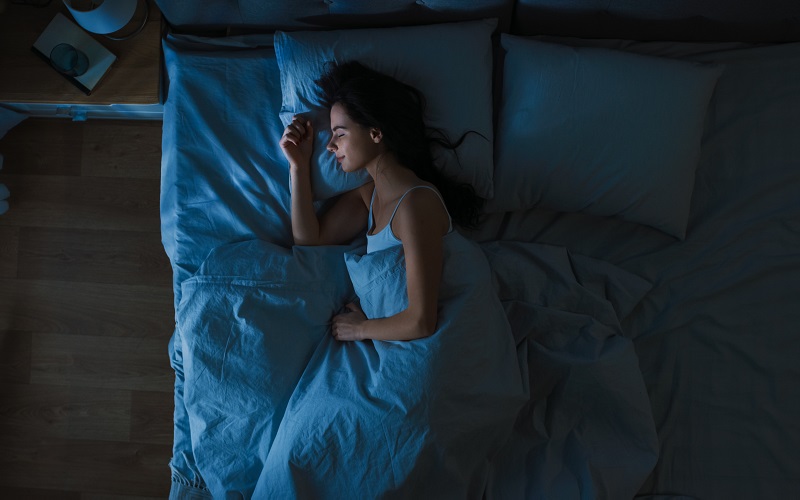
by Dr Jon Van Niekerk, Interim Group Clinical Director
We’ve all been there. Those long nights where it’s impossible to get to sleep or waking in the night and not being able to drift off again. Even when the world is not in the midst of a national crisis, around a third of Britons will experience episodes of insomnia at any given point.
To mark Stress Awareness Month this month, we are launching a series of How To….guides, to help people who are self-isolating and practicing social distancing to look after their mental health.
Here, we examine insomnia, offering a guide to self-diagnosis and exploring practical ways to get a good night’s sleep.
What is Insomnia, what causes it and why is it so important to think about it now?
Most people, at one time or another, will suffer from insomnia, or sleeplessness. Certainly, the factors that determine whether we get a good night sleep are all in play at the moment during this challenging time. Many people will have disrupted sleep due to the stress of change in our working patterns, concerns about the financial impact, disrupted physical exercise routines and constant bombardment from social media. Other conditions can also result in insomnia, including chronic pain, heart failure, restless leg syndrome and menopause.
The way people cope with the increased stress in their lives can itself have a negative effect on their sleeping pattern. Staying up late scrolling through news updates, an increased alcohol intake due to anxiety or boredom and poor diet choices affect our ability to soothe ourselves.
Bouts of insomnia can be short term, lasting a few days or weeks, or long-term. However, if we don’t get enough sleep, our physical and mental health suffers. For many people, this means feeling low in energy, depressed and irritable. It can also affect our concentration and our ability to focus on daily tasks or difficulty remembering.
So, what can we do about it? Here, we set out tips for getting a good night’s sleep.
1. Keep a routine
Make sure that you have routine to your day. Try to go to bed and get up at roughly the same time every day. Most people need between 6-9 hours of sleep. By keeping regular sleeping hours, the brain and your internal body clock get used to a set routine. Even having a “lie in” at weekends, or a nap during the day, tends to disrupt your sleep cycle. For many people working from home, having a routine also helps bring a sense of security and comfort and reduces anxiety.
2. Avoid social media/news updates before bed
As much as we like to stay in touch, using social media before bed can be a really bad idea. The light from smart phones and other devices can activate your brain and prevent your brain from starting to wind down. Particularly at the moment, news updates can be upsetting, and increase your anxiety levels. Consider having a rule of no social media/news a couple of hours before going to bed. It’s also wise to charge your phone away from your bed and turn off notifications on your phone which can disturb your sleep.
3. Avoid excessive caffeine
Do not consume any caffeine after mid-day, particularly if you feel more anxious than usual or are having problems sleeping. Caffeine can still have an effect on your ability to sleep even if taken several hours before bedtime.
4. Limit your alcohol intake
Although alcohol can help some to fall asleep and feel less anxious in the short term as a coping mechanism, it can end up reducing the quality of sleep and increase any feelings of anxiety the next day. Consider having a rule of not drinking during the working week and limit the intake of alcohol over the weekend.
5. Exercise regularly
It is important to ensure that we continue to keep as active as possible. Consider doing exercise at the start of the day, rather than later in the evening. Exercise results in us releasing adrenaline that can remain in the system and make it more difficult to fall asleep later at night. Some light stretching, or gentle yoga, is allowed if this helps you relax.
6. Find out what helps you wind down
Winding down is an important stage in preparing for bed so it’s worthwhile finding ways to calm your mind. Having a warm milky drink, dimming lights and soaking in a warm bath (not too hot) can all help signal to your body that it is time to go to bed. Some people find that listening to relaxing music or using apps that support mindfulness exercises can be helpful (as long as the purpose is to manage sleep and doesn’t mean peeking at social media!)
Rather than watch television, consider reading a book or listening to the radio.
If a specific worry is keeping you up, write it down in a journal and look at this in the morning. It may help you to get some rest without churning the details over in your mind, or worrying you might forget.
For further ideas, try the sleepstation.org website at https://www.sleepstation.org.uk/articles/.
About the author

Jon graduated from the University of Pretoria in South Africa. He completed his higher specialist psychiatry training in Manchester. Jon was part of the first cohort of Medical Leadership Trainees in the North West Deanery and completed the NHS Graduate Management scheme alongside his higher specialist training.
Jon was a founding member of the Manchester Psychiatry Society and the past national Chair of the Royal College’s Psychiatry Training Committee.
Jon’s main research interests include medical education, leadership development, service improvement and change management within healthcare settings and he has published in the areas of medical leadership, recruitment and training of psychiatrists.
In his spare time Jon likes to explore new places, go hiking and is a PADI approved Scuba diver.